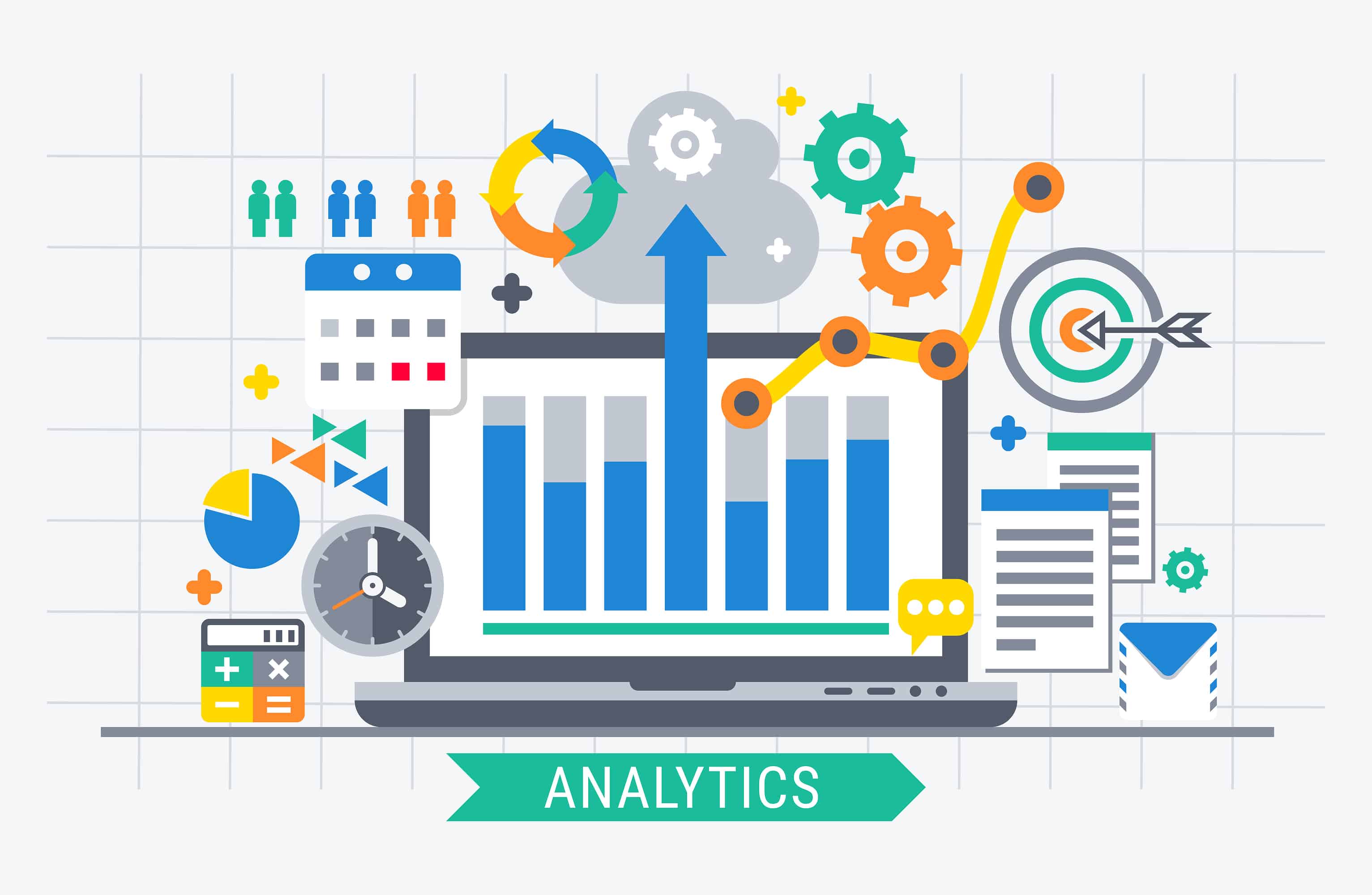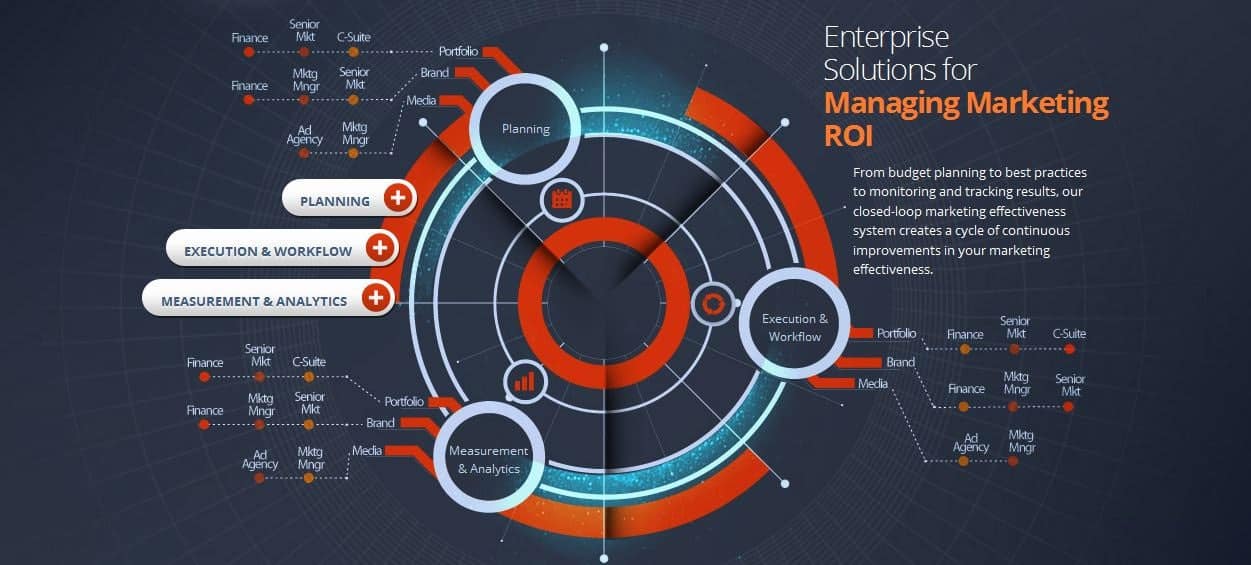What is Marketing Analytics?
Marketing analytics is the term used for all the processes and technologies that allow marketers to measure and evaluate the success of their marketing strategies and methods.
By measuring how well different tasks like blogging, posting on social media, and placing ads on other channels are doing, marketing analytics evaluates important business metrics like return on investment (ROI), conversions, site traffic, and more to gauge the effectiveness of marketing overall.
In short, marketing analytics analyze how well your marketing programs are really doing so that you can make any necessary changes to improve business.
Many web hosts and site platforms come with an analytics tool. With the help of marketing analytics, marketers are able to gather pertinent data from across all marketing channels. They can then consolidate this data to create a common marketing view. Once you have a view, you can find ways to drive your marketing efforts to better meet your business goals.

Why is Marketing Analytics Important?
In the past, the only way to tell how your marketing efforts were doing was through measuring profit margins and seeing how many more customers showed up in stores than usual. Today, businesses have expanded to new marketing categories thanks to the wealth of new technologies available to support, manage, and organize them.
Marketing analytics are important because they offer a holistic view of your business’ marketing efforts and their subsequent success rates. For many companies, having many different marketing technologies can get overwhelming and out of hand. Marketers may make decisions based on just one vein of data from one channel (such as digital marketing or social media), and miss out on the bigger marketing picture.
Instead of looking at just one area of the picture, marketing analytics give you the whole picture, allowing you to make better decisions for your business. For example, without marketing analytics, you run the risk of spending more money than you need to on marketing campaigns and other efforts.
Marketing analytics would make a difference here because they would be able to show you, clearly, if a certain campaign or marketing strategy is costing you more than it is returning. Such a scenario is obviously not sustainable, and only looking at one marketing channel could cause you to miss this huge, money-wasting problem.
When you can see all marketing efforts across all channels, you gain a better idea of what is working, what’s not working, and how to make things better. In business, one bad decision can be detrimental to the whole operation. With this in mind, you want to be as safe and informed as possible. Marketing analytics gives you this safety and much more.

How Do You Get Started With Marketing Analytics?
Across all marketing channels, there is one starting point that always makes sense and sets you up for success: keyword research and target audience. Before you can begin a marketing campaign of any kind, you have to have something to build your content around.
Keywords help you identify what your current and potential customers need and want from your business, allowing you to create blogs, ads, social media posts, and more that are all finely-tuned to their needs.
A beneficial part of engaging with paid and organic search engine marketing (SEM), is that you get keyword data with every click. This means you can learn whether or not the keywords you have researched and chosen actually convert based on the marketing data returned across different channels.
In addition to all of this, keyword research and a target audience can also help you navigate the following:
- Customer Surveys: When checking out keyword frequency data, you can learn what your customers are most interested in and cater to that. If you find that your customers have competing interests, you can prioritize which keywords to focus on
- Product Design: Keywords can influence product design by showing you exactly what features or solutions your customers are looking for in a product.
- Customer Support: Keywords can also offer insights on where your customers are struggling. When in need of support resource, keywords will help you provide your customers with exactly what they’re looking for in the present moment.
- Industry Trends: By keeping an eye on the change in keyword frequencies over time, you can actually identify and eventually predict trends in customer and industry behavior.
These insights all work to support your business as a whole. When you begin with keyword research and identifying a target audience, marketing analytics provide even more information that can help your business not just grow but thrive.

More Marketing Analytics Tips
Marketing Analytics is an avid part of your business’ ability to grow. It can help you gauge your business’ success through all marketing channels and connects your marketing efforts to revenue.
Launching Paid Search Marketing Campaigns:
Paid marketing campaigns involve placing ads in advantageous places, mainly on search engine results pages, (SERPs) relevant landing pages, and even some social media destinations. Include appropriate ad text to improve your quality score, which will, in turn, improve your ad’s position.
Implementing Organic Search Marketing:
Most search engines return data that 80% of Internet searchers will click on an organic result rather than a paid advertisement. Get the best of both worlds by incorporating your best performing keywords on your website, ads, and all other relevant content.

Marketing analytics is a major part of owning an online business, but there’s much more to this endeavor. To ensure that you’re doing all you can for your online business, let Directive evaluate your marketing data and determine how we can grow your business. Our expertise in search marketing allows us the opportunity to provide you with world-class services! Get a free custom proposal with us today.